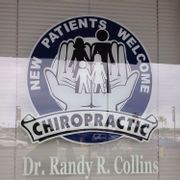
Discs are circular cushions between the bones of the spine, which supports your neck and back. Herniated discs often lead to neck or lower back pain in people ages 35 to 55, especially men. If you experience this discomfort, use this guide to understand the cause and how to obtain relief.
4 Typical Questions About Herniated Discs
What are herniated discs?
Each disc or cushion has a filler of gelatin-like material and a strong shell on the outside called the annulus. If the annulus develops a hole or tear, some filler may come out of the shell. When that happens, medical professionals say the disc is herniated, ruptured, or slipped.
What causes herniation?
A sports injury or sudden twisting movement can lead to a disc herniation. Additionally, disc components weaken and degenerate with age, making older people prone to disc bulges or ruptures when engaging in simple, daily activities.
Why does a slipped disc cause thigh and leg pain?
 The spinal cord contains the sciatic nerve, which affects the legs. A herniated disc in the lower back can irritate and put pressure on the sciatic nerve. As a result, you may feel pain or numbness in your buttocks, thigh, or leg.
The spinal cord contains the sciatic nerve, which affects the legs. A herniated disc in the lower back can irritate and put pressure on the sciatic nerve. As a result, you may feel pain or numbness in your buttocks, thigh, or leg.
Do I need surgery to repair the disc?
While every case is different, most people recover within days or weeks without surgery. Anti-inflammatory medication, physical therapy, back exercises, and muscle relaxants typically grant pain relief. Surgery may be appropriate if conservative treatment isn’t effective.
Herniated discs are common, but you don’t have to suffer with them. If you experience neck or lower back pain, contact Randy R. Collins, D.C., Inc., and his team in Honolulu, HI. Since 1979, these chiropractic professionals have offered non-surgical solutions, including spinal adjustments and physical therapy, to manage their patients’ pain and discomfort. Call (808) 839-7474 to schedule an appointment, or read the latest customer reviews on Yelp.
About the Business
Have a question? Ask the experts!
Send your question

